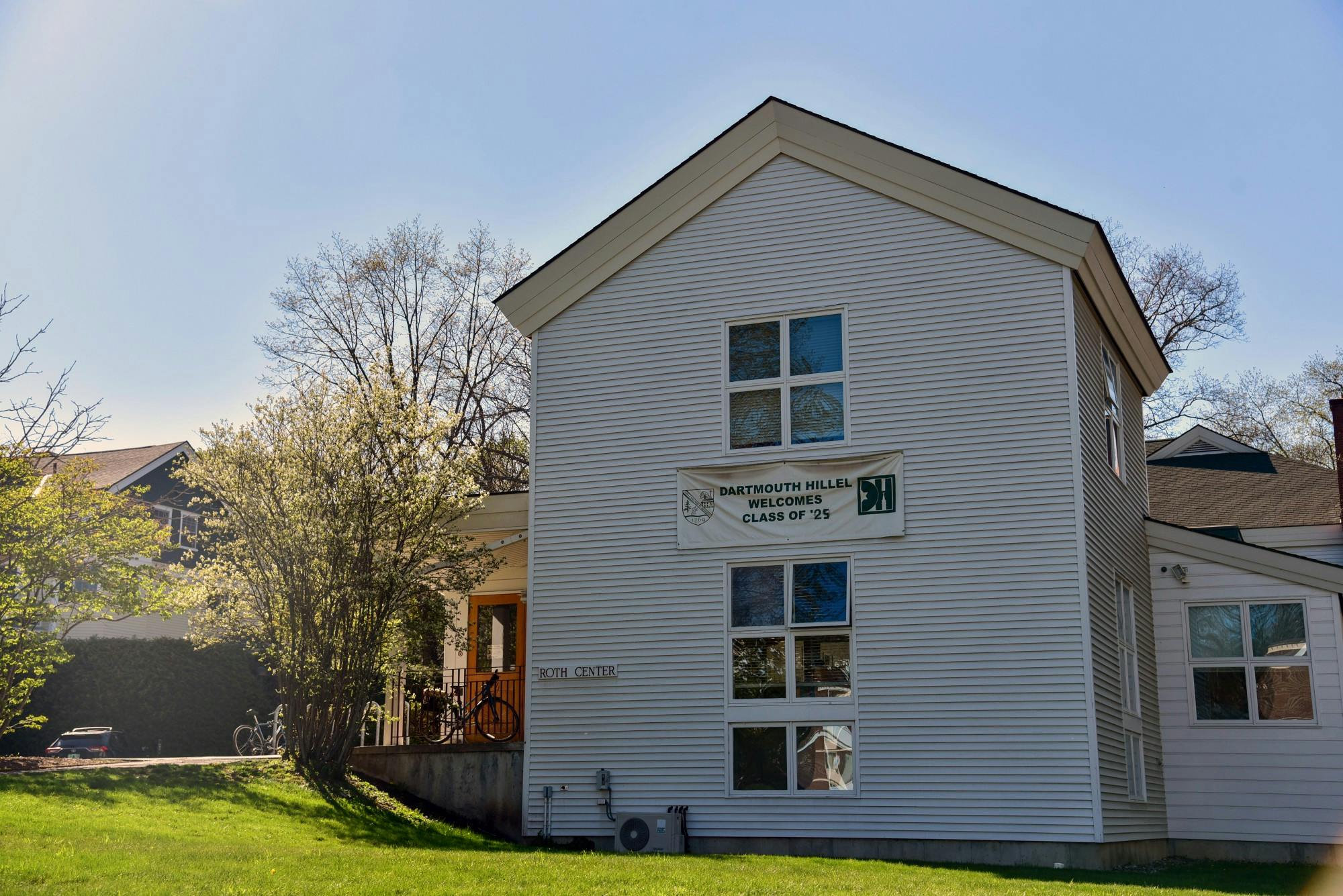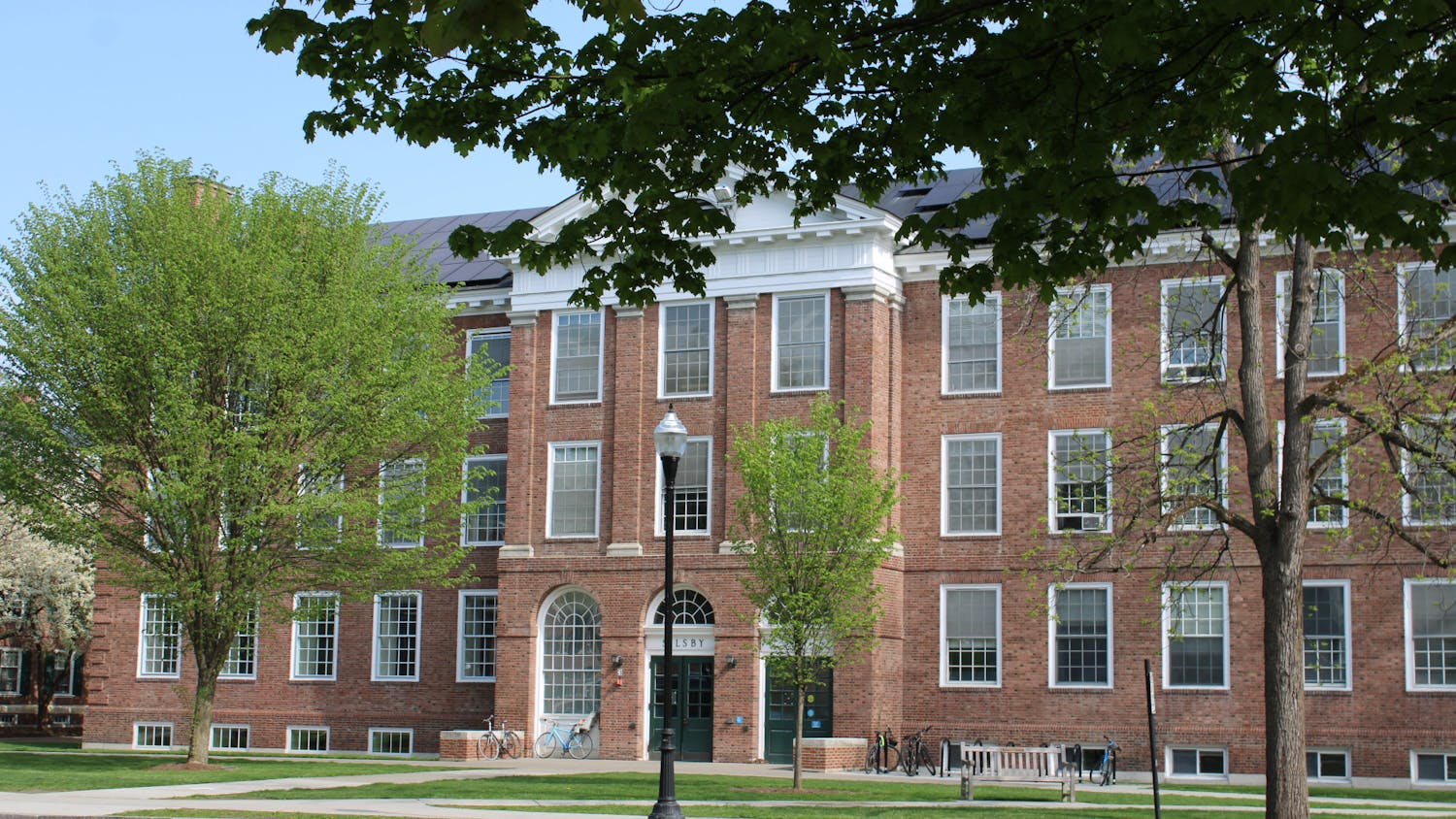Leaving for college is always a kind of uprooting — from home, from family and, for some, from religion. Like many liberal arts schools, Dartmouth has a reputation as a bastion of secular scholarship, but the reality is that it’s just as religious as its student body. For some students, Dartmouth might be the first place where their immediate community isn’t faith-based, while others might have never stepped foot in a church. Between new friends, new perspectives and increasing distance from home, many students find their religious beliefs changing during the college years, but to write off Dartmouth as an entirely secular institution would be a disservice.
This week, I spoke to students about how they reconcile existing religious beliefs with new perspectives they have encountered here, and how this fusion has impacted their overall relationship with religion.
Maiah Newell ’24, a student worker at the Tucker Center for Spiritual and Ethical Life, does not identify with any one religion. Newell is the student facilitator of Multifaith Conversations, a weekly student-led event held at the Tucker Center where, over a catered meal, students of a variety of faith backgrounds discuss the week’s chosen topic on spirituality and ethics. Newell said that her time at Dartmouth has taught her a lot about different religions’ “tangible practices,” and not just their doctrines.
“When I got involved with the Tucker Center and Multifaith Conversations, I was exposed to religious traditions that I’ve never been exposed to before,” Newell said.
Just living in an environment with a diverse group of faiths sparked religious realizations for Daniel Lin ’23. Lin was raised Christian, but he said that exposure to other faiths in college opened his eyes to the validity of other religious perspectives.
“Conversations with [students of other religious backgrounds] really solidified in my mind that there’s ways to be incredibly loving outside of Chirstianity, and the way I grew up was pretty narrow in that regard,” Lin said.
Despite the diversity of religious backgrounds present on campus, Arturo Serrano Borrero ’24 expressed that campus culture still feels overwhelmingly secular. Serrano Borrero identifies as a non-denominational Christian, and he said that he sometimes feels that the secular Dartmouth community could be more welcoming towards those who hold strong religious faiths.
“I think there’s much more religious tolerance and religious diversity back home, and I think that people are much more likely to be religious and respect other people’s religious beliefs back home than here.”
Despite this, Serrano Borrero expressed that he found a community with others who shared his religious beliefs at the Wellspring Worship Center, a non-denominational church located near campus.
“It was a nice community of people, and we had lunch with the pastors,” Serrano Borrero said. “I think that they care about me. They’re able to minister me, counsel me and guide me through my Dartmouth experience and beyond.”
Since his first introduction to Wellspring Worship Center during his freshman winter, Serrano Borrero said that he has attended church regularly, something that was not as feasible for him back home.
“Before coming here, I did not go to church, and now I do,” Serrano Borrero said. “I think I really appreciate the structure of having a dedicated time [for] religion and God every week.”
Serrano Borrero is not alone in investing in behaviors that foster spiritual growth. Newell said she has experienced spiritual growth through the practice of mindfulness.
“I just have more tools in my tool belt now, but the things that I believe in aren’t all that different,” Newell said. “By tools, I mean like daily practices, rituals, breathing exercises, Buddhist practices for trying to cultivate compassion.”
She attributed this change to meeting a religiously diverse group of people on campus and the time she spends with them.
“It’s just a product of growing up. You meet more people and you see the practices that they do, and you adopt what you want to adopt and don’t adopt what you don’t want to adopt,” Newell said.
For Lin, the connections he has formed with people with different religious identities have drastically changed how he viewed religion.
“When I came to Dartmouth, I met a lot of different kinds of people who had adjacent beliefs, who had different beliefs, who had opposite beliefs. I think that really added on to a lot of the questioning that I was already doing of my religion,” Lin said.
Lin said that his Dartmouth experience has resulted in a complete shift in his religious identity altogether.
“I grew up in a non-denominational Christian family and I grew up going to church every week. Eventually, I served in that Christian church quite frequently when I was in middle school and high school. I would lead a lot of worship sets or youth retreats or Bible studies or volunteer for children's programs,” Lin said. “But currently, I do not ascribe to any particular religion and don’t apply any sort of label on myself.”
Lin explained that even though his identity has changed, he still holds many values he attributes to Christianity, such as kindness and love. What has changed is his way of practicing them — he no longer feels a need to fulfill the other aspects of being Christian that he felt weren’t necessary for him to follow.
“And I think for me that constant self-evaluation was a lot of pressure and a lot of stress,” Lin said. “I think a lot of what I got out of Christianity, I still continue to do without applying that pressure label to myself.”
Students at Dartmouth share more than just classes and dorm rooms. We share our stories with each other, in which we embed our beliefs, values and traditions. As we communicate our beliefs with each other, perhaps we can all grow in ways that are unexpected at a secular college like Dartmouth.
“It’s been sort of funny, because my ties to the religious spaces on campus aren’t really for religious purposes,” Newell said. “I still don’t really know what to think of that. But all I know is that it’s brought a lot of joy and thoughtfulness into my life.”




